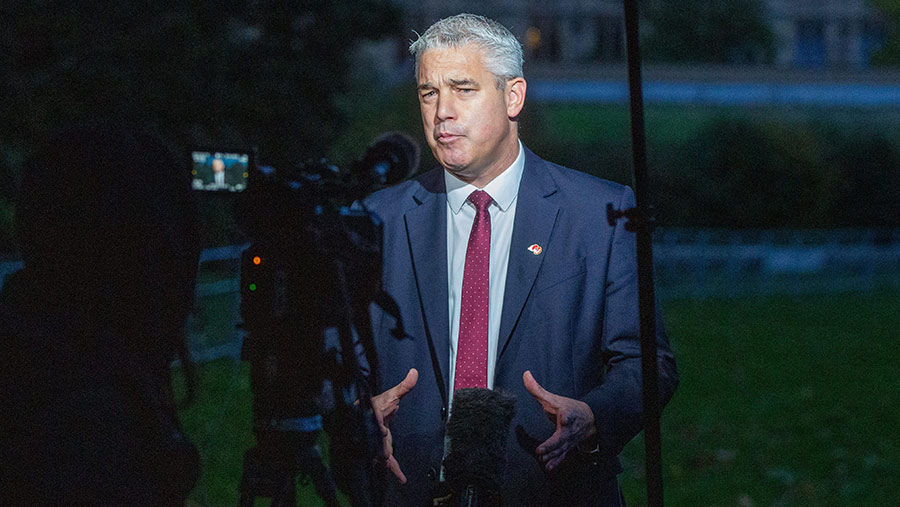Editor’s view: Weary farmers welcome yet another Defra boss
 Steve Barclay MP © Zuma Press Inc/Alamy Stock Photo
Steve Barclay MP © Zuma Press Inc/Alamy Stock Photo This time last week, I hadn’t expected to be feeling sorry for Steve Barclay.
The rugby-loving Brexiteer is, as most of you will have heard by now, the new Defra secretary.
It is his fifth job that requires him to attend cabinet after first being appointed Brexit secretary by Theresa May almost precisely five years ago.
See also: Editor’s view: Culture change needed to secure future food supply
It is difficult to think of another sector outside politics where you would expect someone to succeed in five potentially career-defining roles in that space of time.
Much is normally said at the appointment of a new secretary of state about their lack of experience in the sector.
Yet politicians rarely climb the greasy pole to cabinet level because their life before politics prepared them for the unique challenges of managing, say, the armed forces or the NHS.
Instead, they are chosen more for the same characteristics that parents look for in a well-behaved teenager – respect for hierarchy, the capacity to avoid getting into trouble and the ability to parrot the lines they’ve been taught.
Yet this is not to say that they don’t matter. It’s more that the ones who go beyond defensive competency are few and far between.
For these exceptional individuals to materialise they have to have individual skill and a favourable political backdrop.
We will have to wait and see what flourishes of brilliance Mr Barclay is capable of in this role, but the backdrop is not favourable for him being allowed to perform.
He has a short time until the next election in which to make his mark and an industry worn down by new Defra chiefs – now the eighth in eight years.
The recently revived David Cameron once told his biographer that he was not a big fan of reshuffles for three reasons.
One, they do little good politically. Most folk rightly dismiss these events as yet another episode of tawdry Westminster nonsense rather than seeing it as an example of the prime minister doing something good for the nation.
Two, they produce more losers than winners in the political party. At least some of those who have fallen from grace will go off to make mischief on the backbenches, while those who have been spurned for promotion will feel equally disgruntled.
And three, they disrupt the working of government. It is one of the nonsensical parts of our system of government that a dispute between the prime minister and his home secretary means upheaval, delay and dither across many other departments.
Mr Barclay was last week up to his ears in complex and detailed negotiations over consultants’ pay, with senior doctors having already disrupted our falling-apart NHS with four rounds of strike action.
Dialogue this month was said to be going “really, really well”, as health chiefs awaited progress “with bated breath”.
Now all that is suddenly useless to him and instead this week he will have been viewing what is perhaps the most well-used PowerPoint slide deck in history – NFU president Minette Batters’ “Introduction to farming for senior government ministers”.
AIC, the lobbyists’ association for a £17bn chunk of the agri-supply industry, held its annual conference this week – and the weariness with this system was abundant.
Amid well-intentioned calls for a food security committee independent of the churn of day-to-day government horseplay was a tacit acknowledgement that there was little prospect of an end to the political meddling of which this reshuffle is just the latest episode.
As Churchill once remarked, democracy is the worst form of government, except for all those other forms that have been tried from time to time.

